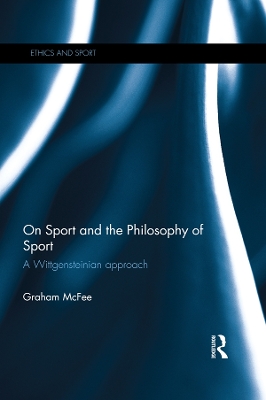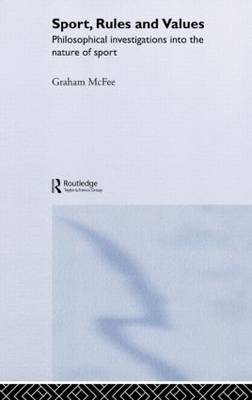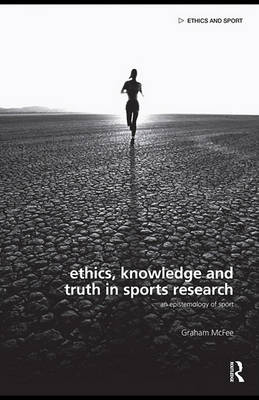Ethics and Sport
5 total works
Ethics, Knowledge and Truth in Sports Research: An Epistemology of Sport
by Graham McFee
What is the ‘philosophy of sport’? What does one do to count as a practitioner in the philosophy of sport? What conception of philosophy underpins the answer to those questions? In this important new book, leading sport philosopher Graham McFee draws on a lifetime’s philosophical inquiry to reconceptualise the field of study. The book covers important topics such as Olympism, the symbolisation of argument, and epistemology and aesthetics in sport research; and concludes with a section of ‘applied’ sport philosophy by looking at rules and officiating.
Using a Wittgensteinian framework, and employing a rich array of sporting examples throughout, McFee challenges the assumptions of traditional analytic philosophy regarding the completeness required of concepts and the exceptionlessness required of philosophical claims, providing the reader with a new set of tools with which to approach this challenging subject. On Sport and the Philosophy of Sport is fascinating and important reading for any serious students or researchers of sport philosophy.
Sport, Rules and Values presents a philosophical perspective on issues concerning the character of sport. Discussion focuses on three broad uses commonly urged for rules: to define sport; to judge or assess sport performance; and to characterize the value of sport - especially if that value is regarded as moral value. In general, Sport, Rules and Values rejects a conception of the determinacy of rules as possible within sport (and a parallel picture of the determinacy assumed to be required by philosophy). Throughout, the presentation is rich in concrete cases from sport, including cricket, baseball, American football, soccer and ice-skating.
Detailed consideration of some ideas from classics in the philosophy of sport, especially writings by Bernard Suits and William Morgan, contextualizes this discussion. Overall, this work exemplifies the dependence of philosophical considerations of sport on ideas from philosophy more generally. Thus it sketches, for example, the contrast between rules and principles, an account of the occasion-sensitivity of understanding, and the place of normative and motivating reasons within practical reasoning.
Sport, Rules and Values represents a distinctive conception, both of sport and of its philosophical investigation, which will appeal to all those with an interest in philosophy and ethics of sport.
On Sport and the Philosophy of Sport: A Wittgensteinian Approach
by Graham McFee
The study of sport is characterised by its inter-disciplinarity, with researchers drawing on apparently incompatible research traditions and ethical benchmarks in the natural sciences and the social sciences, depending on their area of specialisation. In this groundbreaking study, Graham McFee argues that sound high-level research into sport requires a sound rationale for one's methodological choices, and that such a rationale requires an understanding of the connection between the practicalities of researching sport and the philosophical assumptions which underpin them.
By examining touchstone principles in research methodology, such as the contested `gold standard' of voluntary informed consent in the natural sciences and the postmodern denial of `truth' in the social sciences, McFee demonstrates that epistemology and ethics are inextricably linked. Drawing on a wide range of examples, from the laboratory to the sports field, McFee explores the concepts of `knowledge' and `truth' in sports research and makes a powerful case for a philosophical deepening of our approach to method and methodology in sport. This book is important reading for all advanced students and researchers working in sport, exercise and related disciplines.



